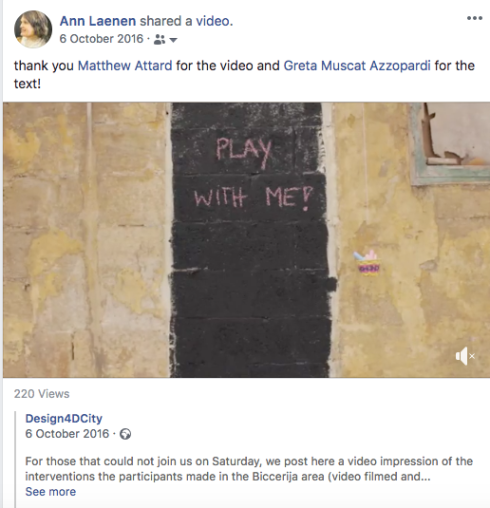 Instead of New Years resolutions, I like to look back a little as it inspires me to look forward. 3 years Meeting Point Strand (2016 – 2018) coordination at Valletta 2018 came to an end. It has been an intense, but rich experience.
Instead of New Years resolutions, I like to look back a little as it inspires me to look forward. 3 years Meeting Point Strand (2016 – 2018) coordination at Valletta 2018 came to an end. It has been an intense, but rich experience.
November 2015 it was, when the question popped up to see what could be the programme of Valletta 2018‘s Meeting Point Strand, and to write a proposal. As the title hints it had to be a meeting place, a crossroad; in short a strand that connected the dots between projects, disciplines, backgrounds and genres.
Some elements where already there, such as the collaboration with Roberto Cimetta Fund on a Mobility Grant to facilitate mobility within the Mediterranean region, or the joint programme with Fondazijoni Kreattività for the artist residencies in Gozo. The rest of the strand was still very open.
So what to take into account when curating the strand? Important it seemed, was not just to connect the dots, but also to find sustainable ground for the programmes that would find their place within the strand. So instead of going for one-off project common interests between partners and disciplines were explored.
And thus liveability, sustainability, connectivity, common space, co-creation and interaction became natural keywords within the strand. It all gradually came along and fell into place. Although the outcomes where very divers, I felt there was a lot of commonality between all the projects that were part of my job as a strand coordinator.
All had a connection with community, co-creation and collaboration. Bridges where made – and some sustainable – between education, design, science, health, urban development and the different art genres.
3 years, 8 residency programmes, 4 inservice trainings on creativity for teachers, 3 urban labs, 3 international workshops, 2 masterclasses, 50 incoming residencies, 3 outgoing residencies and a the monitoring of a mobility grant later I look back at it with gratefulness.
It were 3 exciting years with a lot of emotions, inspiring collaborations, encounters for life and never-to-forget experiences.
 Take for instance all the memories that will stay linked with the artist residency in Gozo . So many different project, so many different outcomes, so many connections with locals of all backgrounds and ages. Bringing in the selection criteria on working/connecting with the community and the local cultural scene has worked well. It was hard to choose between the many strong proposals we received. In total 27 projects took place and 38 artist from 14 different countries stayed in Gharb between the second half of 2016 and 2018. What we hoped for, also happened. Some of the residency projects became part of the Spazju Kreattiv or Valletta 2018 programme, thus with some of the artists we had a longer journey then just the weeks at the residence, but with most of the artists there is still a very good connection. The latter showed when we were setting up the exhibition ‘Not Just the City‘. The exhibition looks back at 3 years of collaboration and introduces the future, as Spazju Kreattiv is continuing with a residency programme on both Malta and Gozo. It was a pleasure to work with Justin and all of the Spazju Kreattiv team, as well as the wonderful regional coordinator for Gozo, Victoria.
Take for instance all the memories that will stay linked with the artist residency in Gozo . So many different project, so many different outcomes, so many connections with locals of all backgrounds and ages. Bringing in the selection criteria on working/connecting with the community and the local cultural scene has worked well. It was hard to choose between the many strong proposals we received. In total 27 projects took place and 38 artist from 14 different countries stayed in Gharb between the second half of 2016 and 2018. What we hoped for, also happened. Some of the residency projects became part of the Spazju Kreattiv or Valletta 2018 programme, thus with some of the artists we had a longer journey then just the weeks at the residence, but with most of the artists there is still a very good connection. The latter showed when we were setting up the exhibition ‘Not Just the City‘. The exhibition looks back at 3 years of collaboration and introduces the future, as Spazju Kreattiv is continuing with a residency programme on both Malta and Gozo. It was a pleasure to work with Justin and all of the Spazju Kreattiv team, as well as the wonderful regional coordinator for Gozo, Victoria.
Or the AiR programme we were able to set up for almost 3 years at the Sir Anthony Mamo Oncology Centre,  bringing art, health and wellbeing together in its own way. Art as a translator of emotions and as comforter along the cancer treatment journey. Pamela Baldacchino, through the Deep Shelter Project developed a strong and divers artist in residence programme including sensory workshops, an international residency, creation of on-site artworks with artists, managing the numerous donations, refurbishing the multi-fate and the interviewing room, organising concerts, readings, … It also resulted in a lot of interesting research, ready to be disclosed. I hope Pam will be able to continue with all this for a long time ;-).
bringing art, health and wellbeing together in its own way. Art as a translator of emotions and as comforter along the cancer treatment journey. Pamela Baldacchino, through the Deep Shelter Project developed a strong and divers artist in residence programme including sensory workshops, an international residency, creation of on-site artworks with artists, managing the numerous donations, refurbishing the multi-fate and the interviewing room, organising concerts, readings, … It also resulted in a lot of interesting research, ready to be disclosed. I hope Pam will be able to continue with all this for a long time ;-).
Art and Science where bridged through a one year collaboration with the newly opened Science centre Esplora, including an international residency for 2 months, a masterclass and an inset for teachers all related one way or another to storytelling. The international residency concluded in an educational animation on indigenous plants (plantarium) and was a close collaboration between the artist and the educational team of the centre … that not just used their scientific, but also their musical skills.
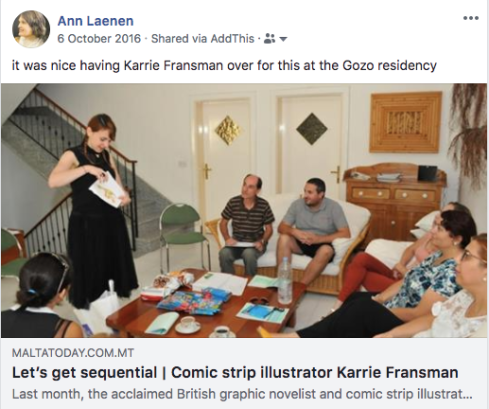
But the strand did not just consist of residencies. It included also workshops, trainings, meet and greets and inset sessions for teachers. From year one, my colleague of the education strand, Angele and I started with a series of workshops for teachers introducing the use of art and creativity in the classroom as part of the inservice programme of the Ministry. The first one used ‘comics’ and took place at the residency in Gozo, the second one focused on creativity as such and the third one used games. For the latter we were lucky to be able to work together with ILearn at the Ministry of Education.
A special one in the series of international workshops was Design4DCity’. The idea to work on interdisciplinary workshops and labs based on co-creation and urban design emerged from discussions with Caldon, the project manager of the Valletta Design Cluster. Since Valletta and in fact the whole of Malta is changing fast challenges on liveability and wellbeing appear. We wanted to support this discussion in an interactive and co-creative way, involving the residents on urban development on new, common space.
 The first workshop took place in Valletta and was the start of a collaboration for the next 2 international workshops with 72Hrs Urban Action. The workshops and labs that took place in the next two years left the city, and explored areas at Birżebbuġa and Siġġiewi. Collaborations with other partners international such as AiRWro for an international residency/exchange, and local show that there is fertile ground for co-creation and co-reflection with residents to define public spaces. We noticed that these 3 years developed some fertile ground to continue the dialogue and the interaction. Design4Dcity is now part of the Valletta Design Cluster, the work has just begun 😉 I’m curious to see how it will develop further…
The first workshop took place in Valletta and was the start of a collaboration for the next 2 international workshops with 72Hrs Urban Action. The workshops and labs that took place in the next two years left the city, and explored areas at Birżebbuġa and Siġġiewi. Collaborations with other partners international such as AiRWro for an international residency/exchange, and local show that there is fertile ground for co-creation and co-reflection with residents to define public spaces. We noticed that these 3 years developed some fertile ground to continue the dialogue and the interaction. Design4Dcity is now part of the Valletta Design Cluster, the work has just begun 😉 I’m curious to see how it will develop further…
Last but not least the strand was among others also able to support a residency at Zfin Malta, Fragmenta Malta and Rima, as well as the masterclasses within the Monteverdi project, a long-term training programme for young Maltese singers.
In sum I could conclude by saying that this could only work thanks to collaborations and connections. To me it was a wonderful experience. It also showed that curation works best when one works together and when one trusts each other. Therefore I thank Valletta 2018 Foundation for trusting me with this, and all artists, colleagues and partners involved, it was a wonderful ride.
Im planning to write an impact paper on this …
Tags: AiR, Design4DCity, Gozo, ILearn, SpazjuKreattiv, Valletta2018, VallettaDesignCluster
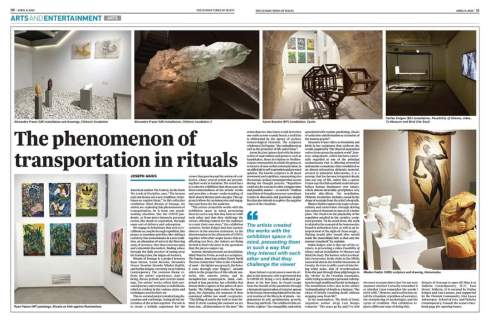

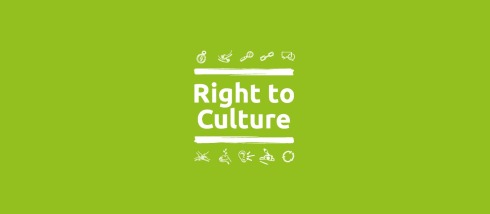 Last month ACM launched ‘Right to Culture’. I had the pleasure to be involved in the process for the focus groups and the interviews, just before and during the first lockdown in 2020.
Last month ACM launched ‘Right to Culture’. I had the pleasure to be involved in the process for the focus groups and the interviews, just before and during the first lockdown in 2020.
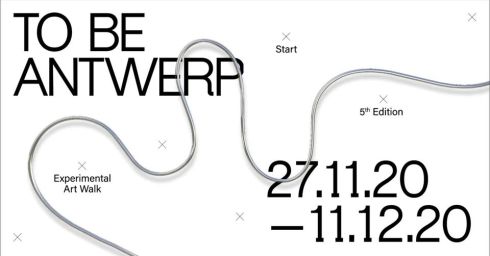 COVID restricts us to go to Museums, but it does not restrict us to walk.
COVID restricts us to go to Museums, but it does not restrict us to walk. 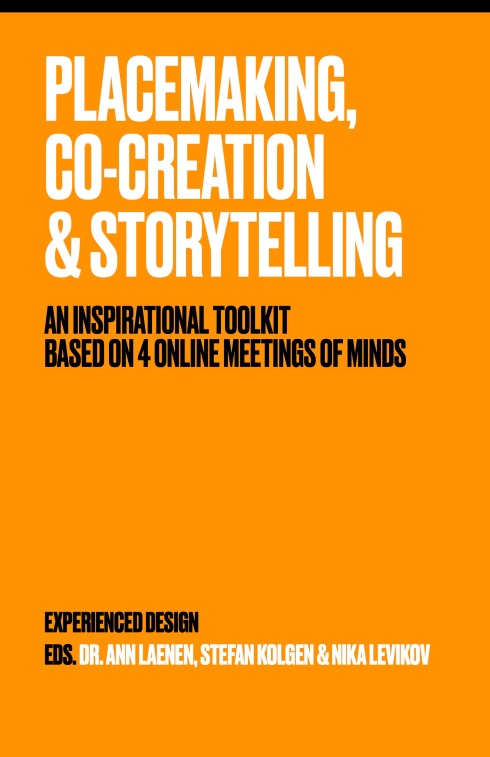 Placemaking is about people, about living together, about a sense of belonging and carving spaces together, about co- creation and sharing stories. And it is crucial for society, especially now as it enters a new dimension in times of a global pandemic that affects us all. What will placemaking look like after COVID-19? What did we learn and what can we take with us to the future? How will we socialise, move from one place to another, (inter)act with and in public spaces after the pandemic?
Placemaking is about people, about living together, about a sense of belonging and carving spaces together, about co- creation and sharing stories. And it is crucial for society, especially now as it enters a new dimension in times of a global pandemic that affects us all. What will placemaking look like after COVID-19? What did we learn and what can we take with us to the future? How will we socialise, move from one place to another, (inter)act with and in public spaces after the pandemic?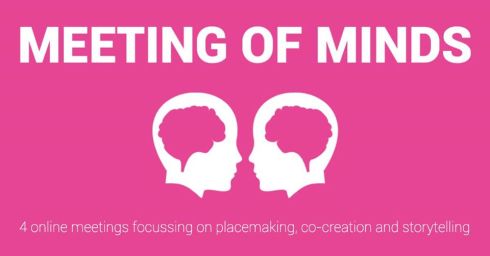 We are excited to share that between 7 and 21 April, Experienced Design (being Stefan Kolgen and myself ;-)) will facilitate 4 online meeting of minds on placemaking related to urban design, tourism, arts and digital storytelling. Each session takes about 1hr 30min and includes two presentations followed by discussion and reflection.
We are excited to share that between 7 and 21 April, Experienced Design (being Stefan Kolgen and myself ;-)) will facilitate 4 online meeting of minds on placemaking related to urban design, tourism, arts and digital storytelling. Each session takes about 1hr 30min and includes two presentations followed by discussion and reflection. In 2017 I had the pleasure to work with the great team of the Erasmus Hogeschool (EhB) – Department of Design and Technology – in Brussels on a new curriculum called
In 2017 I had the pleasure to work with the great team of the Erasmus Hogeschool (EhB) – Department of Design and Technology – in Brussels on a new curriculum called  Instead of New Years resolutions, I like to look back a little as it inspires me to look forward. 3 years Meeting Point Strand (2016 – 2018) coordination at Valletta 2018 came to an end. It has been an intense, but rich experience.
Instead of New Years resolutions, I like to look back a little as it inspires me to look forward. 3 years Meeting Point Strand (2016 – 2018) coordination at Valletta 2018 came to an end. It has been an intense, but rich experience.
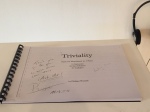



 Take for instance all the memories that will stay linked with the
Take for instance all the memories that will stay linked with the  bringing art, health and wellbeing together in its own way. Art as a translator of emotions and as comforter along the cancer treatment journey. Pamela Baldacchino, through the
bringing art, health and wellbeing together in its own way. Art as a translator of emotions and as comforter along the cancer treatment journey. Pamela Baldacchino, through the 
 The first workshop took place in Valletta and was the start of a collaboration for the next 2 international workshops with
The first workshop took place in Valletta and was the start of a collaboration for the next 2 international workshops with 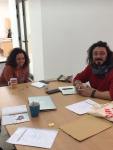
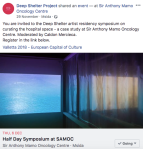

 The exhibition that is currently on at Spazju Kreattiv gives a fine selection of what has happened at the residency in Gozo over the past 3 years. It was difficult to choose between the 27 projects that happened there, but I think Justin Galea and I managed to give a good idea of the excitement and the vibes that all these different artist brought to the Maltese Island.
The exhibition that is currently on at Spazju Kreattiv gives a fine selection of what has happened at the residency in Gozo over the past 3 years. It was difficult to choose between the 27 projects that happened there, but I think Justin Galea and I managed to give a good idea of the excitement and the vibes that all these different artist brought to the Maltese Island.